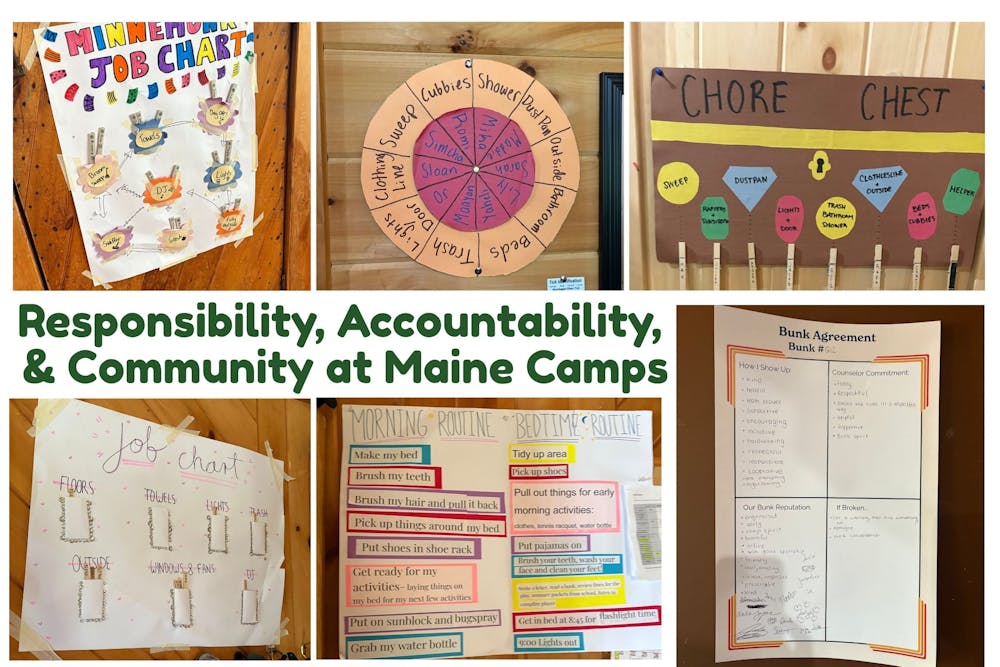
Responsibility, Accountability, and Community at Camp
October 7, 2025
One of the most valuable benefits of overnight camp in Maine is how much responsibility and accountability campers develop during their time away. Living independently from parents and sharing space in a cabin teaches kids critical life skills in a fun, supportive environment. Campers learn not only how to take care of themselves but also how to be respectful, contributing members of a team. At many Maine camps, tools like a Work Wheel, Cabin Contract, and Daily Responsibilities Sign help campers learn these lessons. Here’s how:
The Work Wheel/Chore Chart
In every cabin, kids are responsible for more than just keeping their own space tidy. They’re expected to pitch in and help keep the entire cabin clean, and they take turns doing so with the help of the Work Wheel. This rotating chore chart outlines daily tasks like: sweeping, using the dustpan, wiping the windows, tidying the outside/clothesline area, and turning off lights and closing the door. A few jobs are fun, too! The DJ plays music during clean-up time, and the lucky Day Off camper gets a well-earned break. This system not only keeps things clean, it builds a sense of fairness, teamwork, and personal responsibility.
Cabin Contract
At the beginning of the session, some camps have their cabin groups create a Cabin Contract together. This is a fantastic opportunity for campers to discuss and agree on how they want to live and work as a group. Topics covered often include: cabin values (e.g., being kind, helpful, inclusive), reputation goals (e.g., showing camp spirit, being friendly, practicing good sportsmanship, how counselors can support the cabin, and conflict resolution strategies (e.g., open communication, apologizing, giving and receiving warnings). Once everyone has contributed, they sign the contract, making a commitment to uphold their cabin’s agreed-upon standards. This sets clear expectations and builds a shared sense of accountability from day one.
Routines & Responsibilities
Camp teaches kids many skills that adults might take for granted. Especially for younger campers, it’s often their first time managing the small—but important—tasks of daily life on their own. Helpful Daily Responsibility Signs in cabins can guide campers through what they need to do to get ready for the day or night, such as: making their bed, brushing their teeth, putting on sunscreen, and remembering to bring water bottles or activity gear (like tennis racquets). Counselors are always there to support and remind campers, but these posted routines build independence and confidence day by day.
So, when campers spend time at Maine Camps, not only are they having fun, they’re learning life skills that will help them gorw into capable, thoughtful and confident people - for life!
Maine Camp Experience Resources & Tools: Looking for the perfect Maine camp for your child? Try out our helpful tool where you can select a camp by choosing: type of camp (girls, boys or coed) and session length (1-8 weeks). It helps to narrow down a few camps to a manageable list that includes rates. Then you can research these camps in more depth. Next, be sure to contact our Maine Camp Guide, Laurie to discuss these camps as well as for free, year-round advice and assistance on choosing a great Maine summer camp for your child.